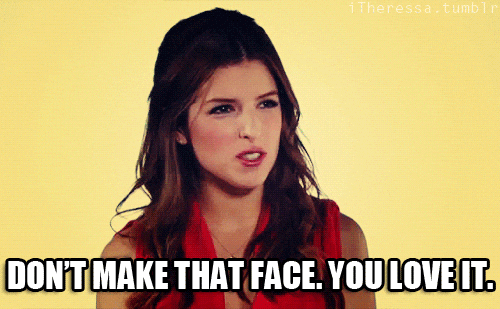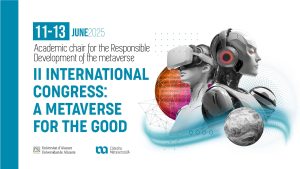MetaverseUA Chair Newsletter #22 – November 2025

This newsletter edition has been elaborated by Pablo Ivorra Gosalvez and Javier López-Guzmán
Hello there, digital explorers! 👾
November is here — and with it, a fresh dose of virtual intrigue, European policy drama, and a few ethical plot twists straight out of sci-fi. From Denmark’s bold move to copyright your own face, to the EU’s latest test beds for immersive tech, and a brand-new association shaping the future of virtual worlds — this month’s stories remind us that the Metaverse might be virtual, but the governance challenges are very real.
So, grab your headset (or your legal codebook), and let’s dive into a new chapter of Europe’s digital odyssey — where interoperability meets integrity, and avatars finally get some human rights.
🌐 Europe Levels Up: The Virtual Worlds Association Is Born
Make room, Meta — Europe just got its own metaverse powerhouse. The Virtual Worlds Association (VWA) has officially launched, joining the European Commission’s Horizon Europe Virtual Worlds Partnership to build a coordinated, citizen-focused vision of virtual environments across the continent.

The VWA aims to bring together researchers, policymakers, and industry innovators to shape how Europe designs, governs, and benefits from the Metaverse. It’s a big step toward turning buzzwords into frameworks — and ensuring that the “virtual” in virtual worlds doesn’t mean “lawless.”
For the record, they’re already hiring their first Secretary General… so if you’ve ever dreamed of managing the metaverse (legally speaking), this might just be your chance.
🧩 Standards , Assemble! Europe Maps Out Its Virtual Rulebook
Before the metaverse can connect people, it has to connect itself.
Enter ViWISSO — the Virtual Worlds Interoperability and Standards Status and Opportunities project — a year-long EU initiative coordinated by ETSI to chart the chaotic universe of standards that underpin virtual worlds. ETSI is the European Telecommunications Standards Institute.
The freshly published Standards Landscape Report dives into seven domains of XR and metaverse technologies, identifying where Europe’s digital dream still needs some wiring. From privacy protocols and data formats to device compatibility and virtual economies, the message is clear: no interoperability, no metaverse.
Think of it as Europe’s first “rulebook draft” for the virtual frontier — one that aims to make sure your avatar, your data, and your digital wallet can all speak the same (secure) language.

🤝 Ethics Reloaded: XR4Human Publishes Europe’s First Code of Conduct for Immersive Tech
What happens when the metaverse grows too fast for its moral compass? Europe just adjusted it.
The Horizon Europe XR4Human project has released its first Code of Conduct and Interoperability Guidelines — a landmark document setting ethical standards for how virtual, augmented, and mixed reality technologies should be designed, developed, and deployed.
Covering a wide range of topics, from privacy and avatar ownership to user well-being and sustainability, the Code lays out seven core principles: transparency, data protection, safety, inclusivity, accountability, interoperability, and respect for human dignity.
It’s not exactly the Ten Commandments, but it might be the closest thing the Metaverse has right now. Because in virtual worlds, just like in real life, “by design” should also mean by conscience.

🧪Europe Opens Its Virtual Test Beds: From Hype to Hands-On
The metaverse is getting real — literally. The European Commission has opened its call for proposals under “Virtual Worlds Test Beds”. Its aim is to fund two large-scale testing environments, where virtual meets physical.
One test bed will focus on industrial applications — smarter factories, digital design, construction — while the other targets societal fields such as education, cultural heritage, and healthcare. The goal? To move beyond prototypes, and see how immersive tech performs in the wild.
Beyond the funding (and the acronyms), this initiative marks Europe’s commitment to building interoperable, ethical, and human-centered virtual ecosystems.
Deadline’s March 3, 2026 — so if your idea could make the metaverse a little more tangible, Brussels is literally inviting you to test it out.

🧠 Denmark Draws the Line on Deepfakes
Copenhagen just made digital history: Denmark is moving to grant citizens copyright-style ownership over their own face, voice, and body — a world first in the battle against AI-generated deepfakes.
The proposed amendment to Denmark’s copyright law aims to protect individuals from having their likeness cloned or manipulated without consent, recognizing digital identity as an extension of personal rights. With cross-party support and submission expected this autumn, the message is clear: your image is yours — even online.
Virtual Worlds, as any other interconnected domain in the Internet, suffers from the expansion of deepfakes. These regulative initiatives intend to limit these abuses, and help making a better and healthier Metaverse.

🧭 Upcoming Events You Won’t Want to Miss!
UnitedXR Europe (8-10 December, Brussels, Belgium) – MetaverseUA Takes the Stage at UnitedXR Europe on December 8th, as the spotlight turns to a crucial question: what does it really mean to put the human at the center of technology? Our panel, entitled “The Human at the Center: A Value Proposition for EU Tech Policies” will gather ethicists and legal experts to explore how Europe can uphold human dignity, rights, and agency in the face of AI and XR’s global race for scale and control. We’re proud to see our very own Javier López-Guzmán, Research Fellow at the University of Alicante’s MetaverseUA Chair, among the speakers.
🌀Crtl+Alt+See You Soon!
And that’s a wrap for this month’s deep dive into Europe’s ever-expanding digital dimension — where standards meet ethics, avatars gain rights, and lawmakers finally start catching up with algorithms.
Until next time, stay curious, stay compliant, and remember — in the Metaverse, as in law, interoperability is everything.
Pablo Ivorra Gosalvez
Javier López-Guzmán





